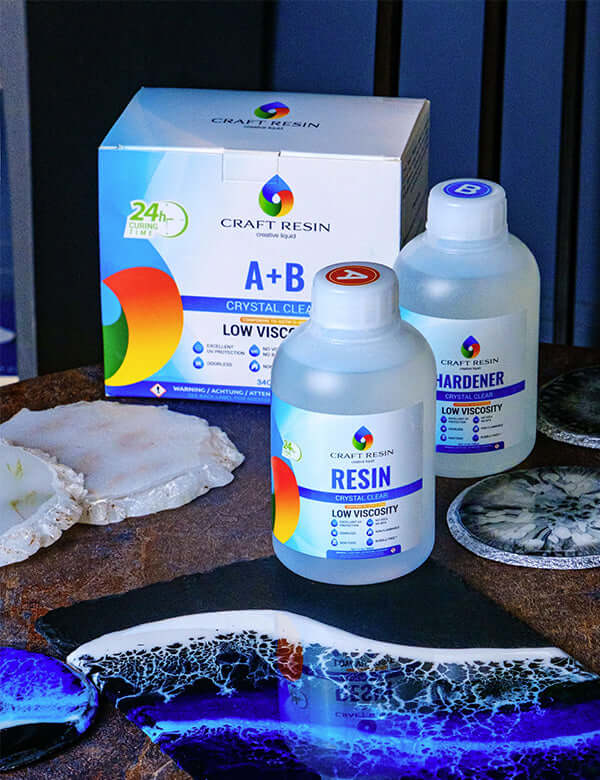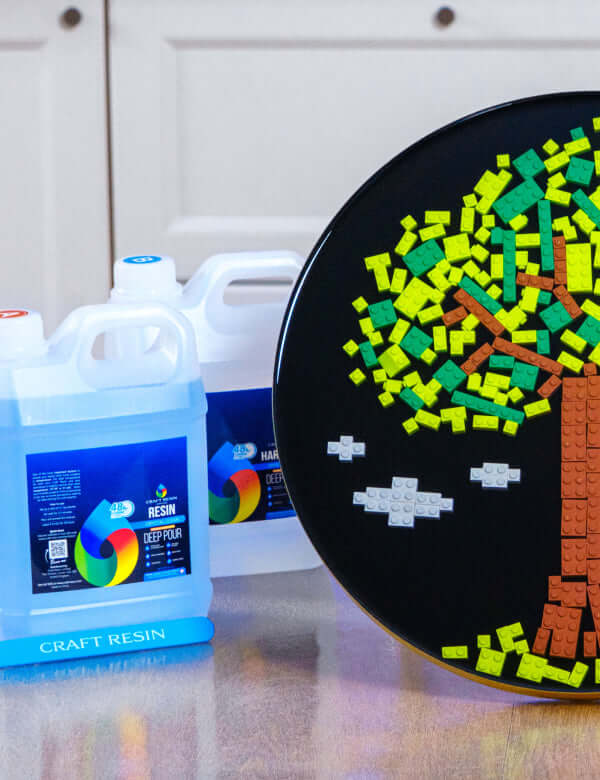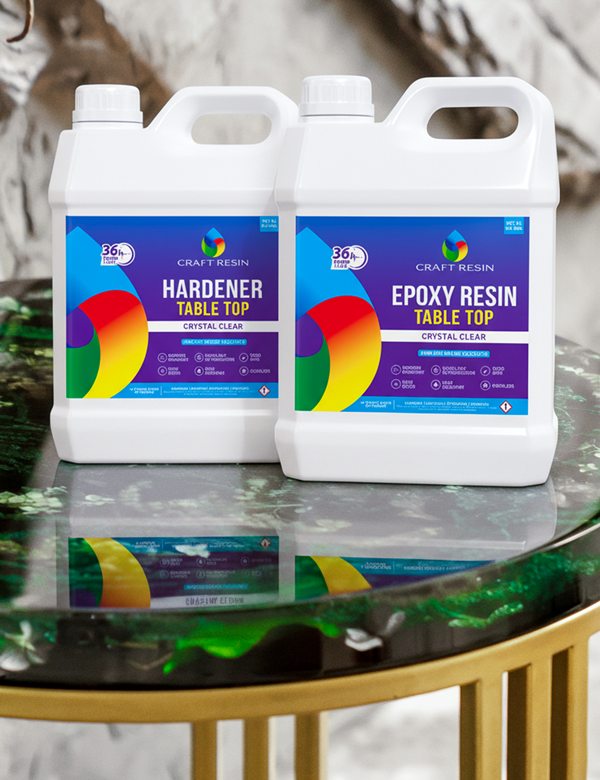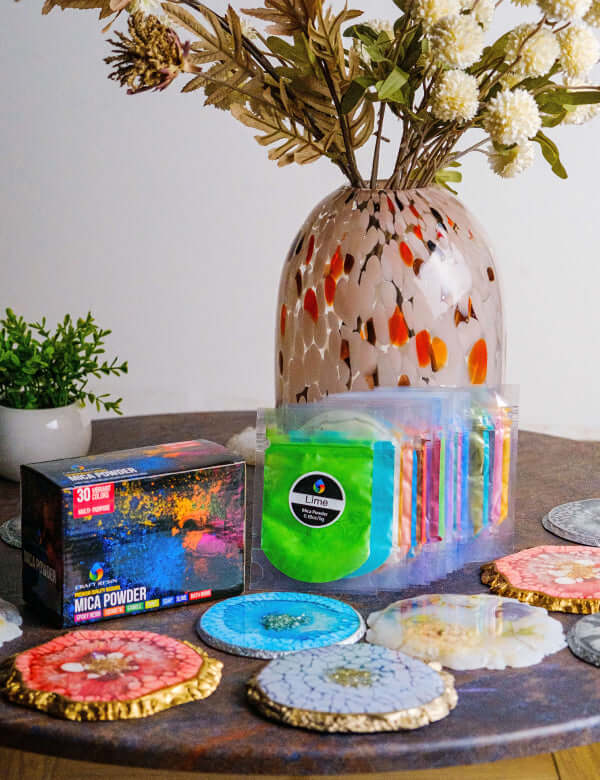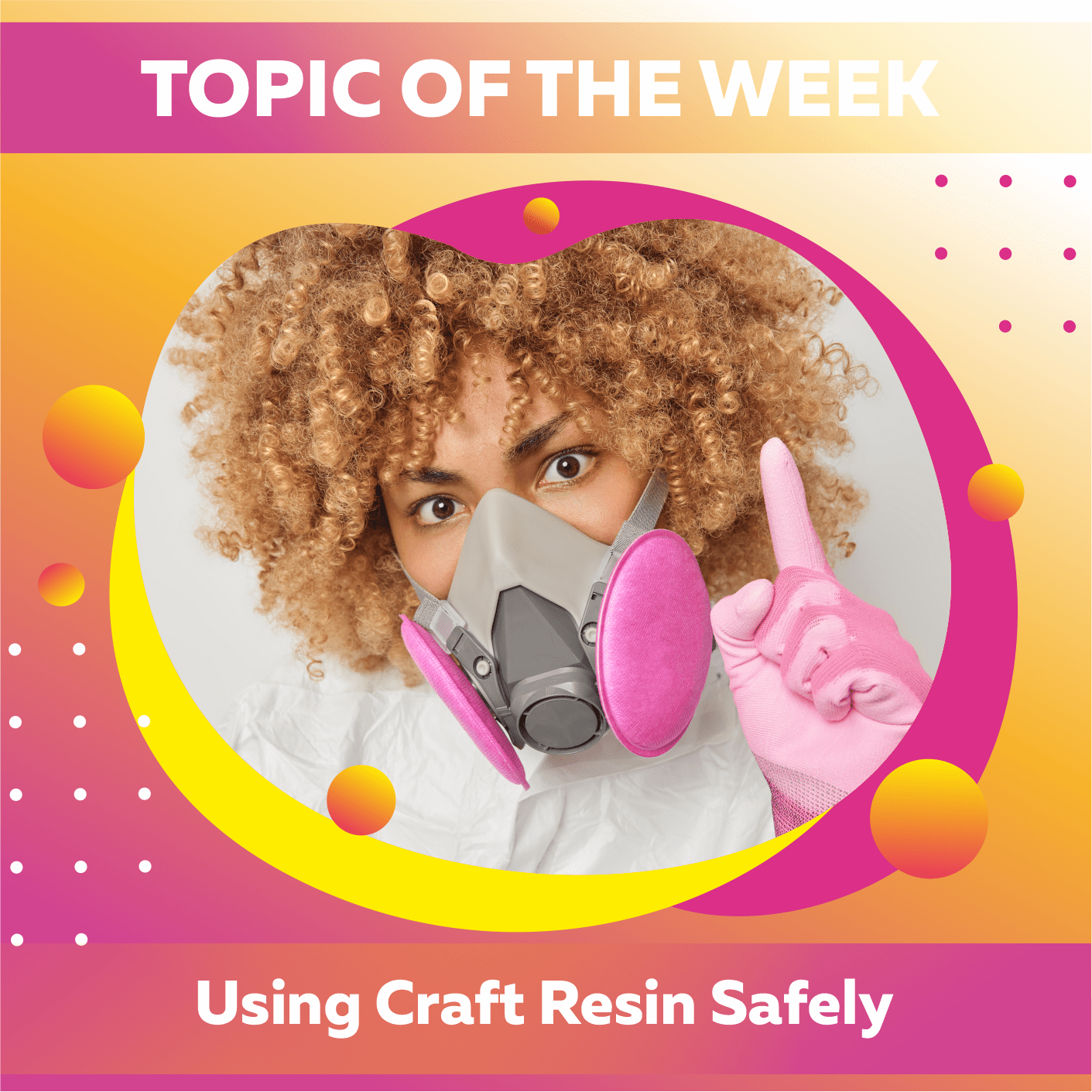If you take the advice from the blog article published this week, you will be able to utilize Craft Resin risk-free. In case you take all the necessary safety measures, working with epoxy resin from any of our brands is risk-free.
If you are working with a different type of resin, you must read the directions provided by the resin maker to keep yourself safe. Users of Craft Resin, if you are interested in learning more about how to use our brand's resin responsibly, continue reading the remainder of this article.

Our clear epoxy resin for moulding passed the CAN20-140587 testing ID, demonstrating that it complies with the REACH standards.
Craft Resin's epoxy resin is produced using only the highest quality components, and as a result, it does not release any harmful emissions or volatile organic compounds (VOCs).
Because there are no solvents or other non-reactive diluents in the formulations, all components can react with one another. This reaction ensures that no hazardous ingredients in the formulation can go airborne and cause harm.
Its liquid form is safe as long as it is not combined with other flammable substances, such as alcohol-based inks. These considerations mean that it does not qualify as a dangerous commodity and may be shipped via airplane.

Craft Resin is Non-Toxic and safe for home use; this is only valid when used as directed in a well-ventilated space, but what does that mean:
Non-toxic Resins and do not include any volatile organic compounds do not contain any potentially hazardous ingredients, as required by all applicable legislation. Extensive testing on Craft Resin is carried out by a third-party company that is completely impartial. Combining components A and B, which are non-toxic on their own, would be meaningless because volatile organic compounds (VOCs) make a resin dangerous. When cooked in a microwave, a hot sink, or with a heat gun, this does not emit dangerous chemicals since it does not include volatile organic compounds or contain any volatile organic compounds.
Craft Resin has a slight odor; however, despite this, we always recommend to our customers that they use protective clothing since the smell they pick up is coming from the Craft Resin itself and not from any gases. It may be difficult to determine whether or not the ventilation in your place of employment is adequate, particularly if you are required to keep the temperature there constant. Taking precautions is highly recommended, given the circumstances.
VOCs may be found almost anywhere; they are the compound that gives "new" fragrances to things like plastics and markers (as well as the fragrances in perfumes and colognes) as a result of the heat produced during the curing process, toxic fumes, and vapors are released from resins that include volatile organic compounds (VOCs). This is because the heat induces the VOCs to boil at a lower temperature, releasing toxic fumes and vapors. Resins that include volatile organic compounds generally emit an easily detectable smell.
If a resin states that it is non-toxic or free of volatile organic compounds (VOCs), it does not include any VOCs. Since it does not contain VOCs, the heat created during the curing process cannot produce dangerous fumes or vapors. Non-toxic resins will not have any identifiable odor since they do not contain the component that gives dangerous resins their characteristic smell. Compared to the aroma of resins that contain volatile organic compounds, the fragrance of Craft Resin is rather subtle.
Even though they each have their different definitions and uses, the phrases "toxicity" and "sensitization" are occasionally used interchangeably. If something is dangerous, it will instantly affect the organ no matter how it is introduced to the body; this includes ingestion, inhalation, and topical application. Independent of the material's overall degree of toxicity, a substance is considered poisonous if it affects a particular part of the body. Because it involves a reaction from the immune system, sensitization is considered the same as an allergy. An allergic reaction and a toxic response are two very distinct things.

Like many other things in the world, the resin is made up of natural and synthetic ingredients, the effects of which can range from mild to severe depending on the individual's immune system. Some people, for instance, are allergic to peanuts, but that doesn't mean they're harmful in and of themselves. Some people can develop sensitivities to the resin, but it doesn't make the resin itself harmful.
Sensitization refers to the process through which your body responds to a stimulus.
Although toxic consequences and allergic reactions are often two different symptoms, they can occasionally present similarly. A case in point is the similarity between anaphylaxis and a respiratory irritant. It is possible to develop an allergy to resin anytime, even after prolonged exposure. Even if you have dealt with it for a long time, the unexpected is always a possibility.
If you experience any response or strange symptoms after working with craft resin, you should immediately see a doctor.
If you can do so, it is a smart idea to keep a record of the goods you've used in the recent past that could be to blame for the reaction. The subsequent stage is to remove them from your working environment by gradually reintroducing things you had avoided in the past. This is done so that you can determine whether or not any reactions have taken place. If you have only had mild symptoms, try this.
When worn properly, personal protective equipment (PPE) can serve as a barrier that stops discomfort from forming in the first place.
If you have any more inquiries or would like to examine our testing certificates or any other safety paperwork, please do not hesitate to contact us.

Should I Take Any Safety Precautions?
If you use Craft Resin carefully and follow the instructions in the following list, you may do so with the assurance that you won't put yourself in harm's way:
Put on some gloves. Epoxy resin is a very tacky material that, if it comes into touch with a person's skin, can irritate that person's skin. In each of our kits, you will find a pair of gloves; however, if you have an allergy to latex, it is strongly recommended that you purchase an alternative set of gloves to use. Consider purchasing longer gloves, which will cover more of your hand and more of your arm flesh. This will provide an additional layer of protection for your hands and arms.
Any exposed skin should be washed with mild soap and water as soon as possible if epoxy resin comes into contact with it.
If any chemicals enter your eyes, flush them with water for several minutes without rubbing them. Get yourself to a doctor or nurse right away. You should use protective eyewear to prevent epoxy resin from entering your eyes in the first place.
Get some fresh air while you're at it. If you can't operate in a well-ventilated location because of the temperature, or if you can't tell if the space has good ventilation because of the conditions, please use a respirator. However, a respirator supplier can advise you on the best respirator to use based on the information provided in the Safety Data Sheet (SDS) we have with us. Unfortunately, we cannot recommend a specific model of respirator to you.

Food Safety:
Apologies for the pun, but we couldn't help ourselves. When we refer to a surface as "food safe," we imply that once it has been created using Craft Resin and allowed to dry and harden completely. You can use it without risk as a surface that comes into contact with food. You could use it as a platter if you wanted to.
Craft Resin was subjected to rigorous testing for leaching and migration in accordance with international standards, which it excelled in and received a passing grade for. Food that comes into contact with fully cured Craft Resin that has been used as described will not absorb any chemicals in the resin.
Look through the Safety Data Sheet (SDS) for Epoxy Craft Resin for more information.

Can I Use Craft Resin When Pregnant:
Craft Resin is safe for use in the home and does not pose any health risks. Craft Resin is non-toxic. We strongly recommend that pregnant women get medical advice as soon as possible to evaluate whether their actions would adversely affect their unborn child.
Suppose your obstetrician permits you to use epoxy resin while you are pregnant, and you want to continue working with it. In that case, you should investigate the precautions you normally take while working with Craft Resin. To lessen the likelihood of suffering an accident, you should do your job in an area that has adequate ventilation, don a face mask if one is provided, and step away from your workstation for breaks on a more regular basis.
You are now certain that you can work with epoxy resin dye that is crystal transparent while still adhering to all of the required safety precautions.
Since you are now aware of how to protect yourself when working with epoxy resin, you are free to go out and purchase goods that Craft Resin crafted.
Shop your epoxy resin starter kit
Topic Of The Week Giveaway:
We have attached a giveaway to this Topic Of The Week announcement on our Instagram platform; this is helping us to spread the knowledge of how to use epoxy resin further, but also enabling anyone who helps us to share this information to win free resin and mica powders.

To enter the weekly giveaway, please see the latest post pinned to the top of our Instagram feed and follow the instructions to enter:
Team Craft Resin

